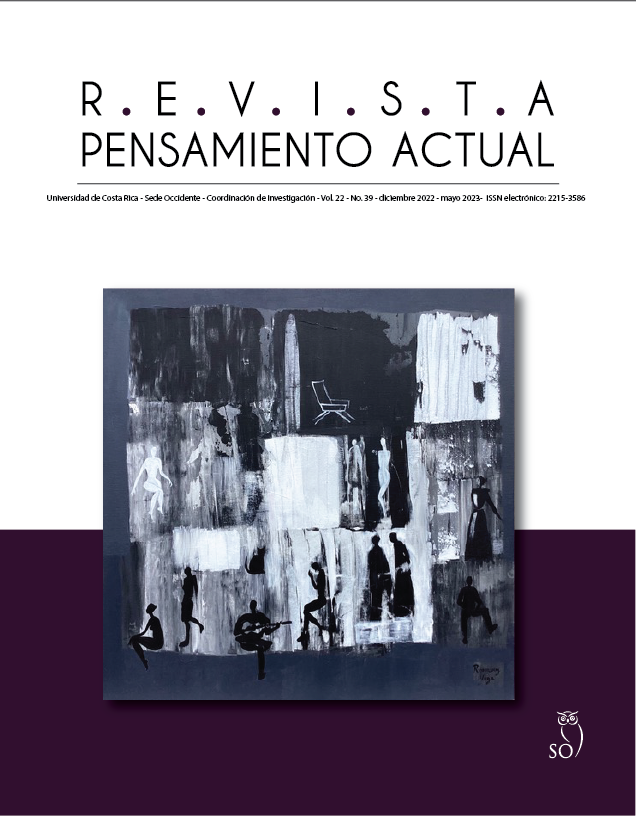Abstract
El presente ensayo analiza tres aspectos que la población docente debería tomar en cuenta al suministrar retroalimentación correctiva en el aprendizaje del inglés como segunda lengua. El primer aspecto es la medida en la cual el contexto y enfoque instruccional influencian la decisión de los docentes sobre el tiempo y el tipo de retroalimentación que se brinda. El segundo punto menciona cómo el análisis de los errores propios puede contribuir al corregir errores de los demás. El último aspecto es la forma en la que la población docente puede balancear sus preferencias y las de sus estudiantes al momento de suministrar dicha retroalimentación. Se establece una asociación entre las técnicas utilizadas para la corrección de errores y el contexto instruccional en el que se emplean (expectativas y antecedentes de los estudiantes, así como sus habilidades). Además, se examina la importancia de analizar los errores propios con el fin de preparar material correctivo relevante para la población estudiantil, a partir de la anticipación de sus posibles errores. Finalmente, se destaca la necesidad de procurar un ambiente en el cual puedan interactuar las preferencias sobre técnicas correctivas implícitas y/o explícitas que tiene la población estudiantil y la población docente.
References
Adams, R., Jackson, P., Lenton, K., Dugdale, M., Whittaker, C., Larsy, N., & Charles, E. S. (2019, July 2). Error detection tasks and peer feedback for engaging physic students. Spie Digital Library. https://doi.org/10.1117/12.2523795
Aljaafreh, A., & Lantolf, J. P. (1994). Negative feedback as regulation and second language learning in the zone of proximal development. The Modern Language Journal, 78(4), 465–483. http://ezproxy.sibdi.ucr.ac.cr:2048/login?url=https://www.jstor.org/stable/328585
Brosh, H. (2017). Grammar in the Arabic language classroom: Perceptions and preferences. Al-’Arabiyya, 50, 25–52. http://www.jstor.org/stable/26451395
Csaszar, I. E., Curry, J. R., & Lastrapes, R. E. (2018). Effects of loving kindness meditation on student teachers’ reported levels of stress and empathy. Teacher Education Quarterly, 45(4), 93–116. https://www.jstor.org/stable/26762171
Lee, E. (2013). Corrective feedback preferences and learner repair among advanced ESL students. System, 41(2), 217-230. https://doi.org/10.1016/j.system.2013.01.022
Li, S. (2017). Corrective feedback in second language teaching and learning. Routledge.
Pawlak, M. (2014). Error correction in their foreign language classroom: Reconsidering the issues. Springer.
Schulz, R. (2001). Cultural differences in student and teacher perceptions concerning the role of grammar instruction and corrective feedback: USA-Colombia. The Modern Language Journal, 85(2), 244-258. https://doi.org/10.1111/0026-7902.00107
Spada, N., & Lightbown, P. M. (2008). Form-focused instruction: Isolated or integrated? TESOL Quarterly, 42(2), 181–207. https://www.jstor.org/stable/40264447
Willis, J. (n.d.). Six types of tasks for TBL. British Council. https://www.teachingenglish.org.uk/article/six-types-task-tbl
Zamora, A., Suárez, J., & Ardua, D. (2018). Error detection and self assessment as mechanisms to promote self-regulation of learning among secondary education students. The Journal of Educational Research, 111(2), 175-185. https://doi.org/10.1080/00220671.2016.1225657
Zamora, E., & Sevilla, H. (2011). Developing self-teaching skills in EFL learners through correction techniques [Panel discussion]. III Congreso Internacional de Lingüística Aplicada CILAP, Universidad Nacional, Heredia, Costa Rica.
##plugins.facebook.comentarios##

This work is licensed under a Creative Commons Attribution-NonCommercial-ShareAlike 3.0 Unported License.
Copyright (c) 2022 Pensamiento Actual

